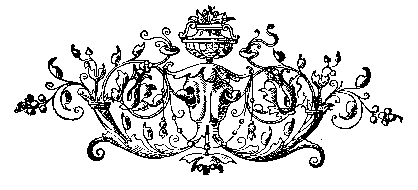THE works of writers whose thoughts, whose words, and whose memories are vital for successive generations, are those to whom is permitted the name of Classics. It was by writers of this class that American literature, in the deeper sense of the term, was begun; literature which, intelligently studied, should form an important part of the education of every American boy and girl.1
This group, distinguished for breadth both of culture and of character, was not limited, in the source of its inspiration, to America. Among the influences due to the poetry of foreign lands, the principal influence came from that vigorous poetry of England which sprang up about the beginning of the nineteenth century. An account, for purposes of brief study, of the origin of this American poetry, need, therefore, not go back to the epoch of the first settlements; but requires only to mention the adoption of style from English literature and from other literatures, and may then proceed to mark the poetic achievements, under American conditions, according to the laws of poetic truth and poetic beauty.
From this point of view, if we include the field of literature as a whole, the first man of letters in America was Washington Irving. A man of taste and feeling, who was familiar with the social conditions of both sides of the Atlantic, Irving prepared the way for the wide development of American literature not only through his expression of cosmopolitan ideas, but also by awakening a public sentiment for literature of a higher kind than had been before realized; and thus more easily, after Irving, arose a number of writers, who, in prose or poetry, gave themselves generously to their art.
Before this general result, however, and only a little after the beginning of Irving's career, the solitary figure of Bryant had stood forth as a poet worthy of high honor as a writer of English verse. It may be noted in passing that American literature in Bryant goes back, therefore, a score of years before Tennyson had printed a line, and has, at the present time, accordingly, an element of age as well as of apparent permanence.
In the decades following Bryant's first publication, literature as a profession being more favored through the springing up in the community of an interest in books of an æsthetic description, the poetic product became larger and richer. In purpose, as in character, this poetry was somewhat varied. Sometimes, as in the verses of Whittier and Lowell, the cause of antislavery was contended for; with other writers, such as Longfellow and Poe, the poetry appealed chiefly to the imagination.
The group as a whole is the part of American poetry, as has been said, which should at the present time be most studied. Forerunners of it are of less importance as literature, and later verse is the work of writers of to-day, who, being contemporary and having the possibility of a poetic future, cannot fairly be criticised in the same way as those whose work stands as done.
One certain word of praise may be passed on the group now under consideration. In general, perhaps, they did not write too much; what they did write they wrote as well as they could. In their work, also, in keeping and in enlarging both poetic and spiritual laws, they are in this country historic.

1 A perfect American culture will include also the prose works of Emerson and Hawthorne.
American Song.
A collection of representative American poems,
with analytical and critical studies of the writers
With introductions and notes by
Arthur B. Simons
New York, London
G. P. Putnam's Sons
1894
First Internet Edition 1997
Rutgers University Libraries
PS583.S795A
Omnipædia Polyglotta
Francisco López Rodríguez
[email protected]
[email protected]

